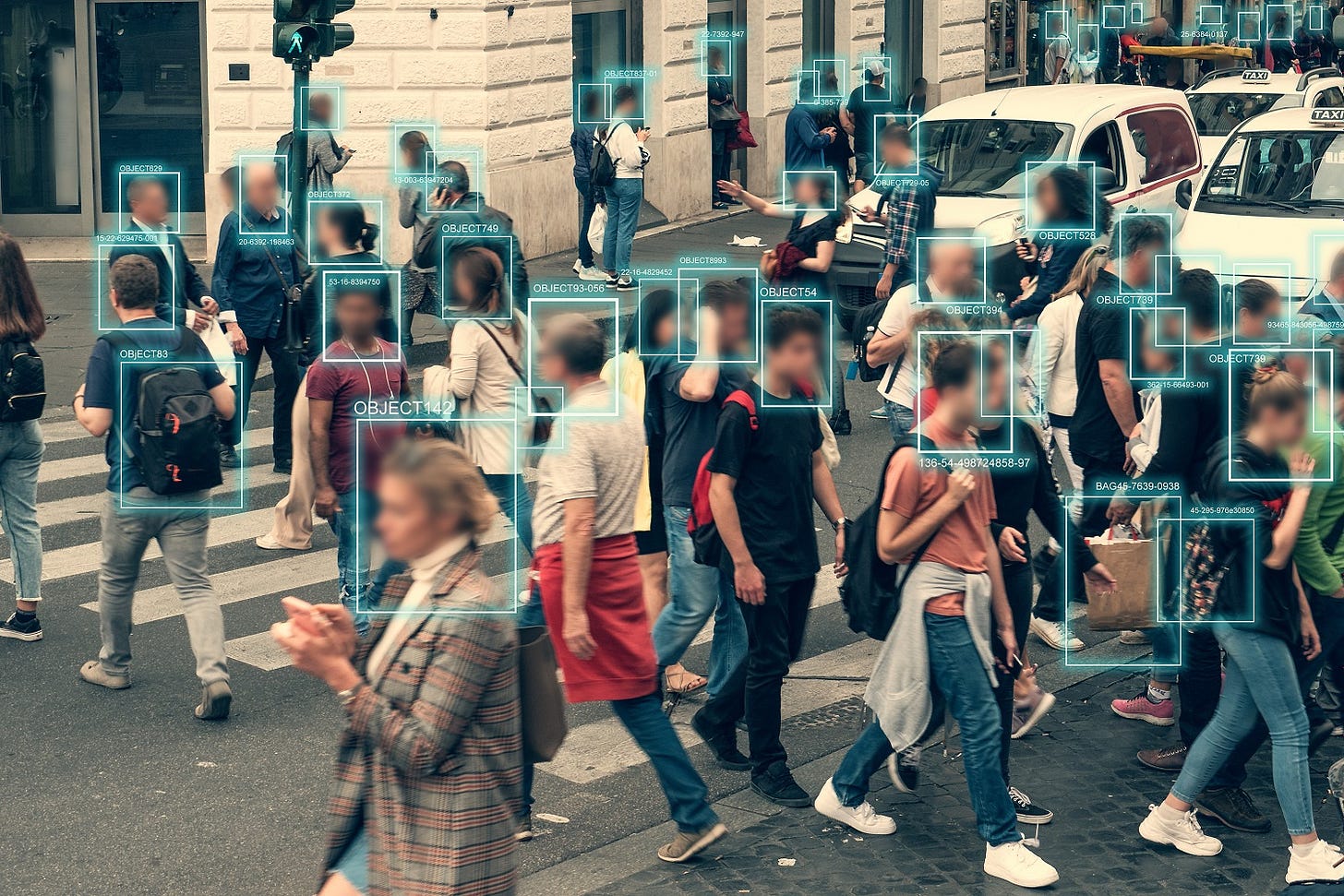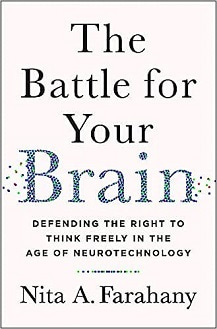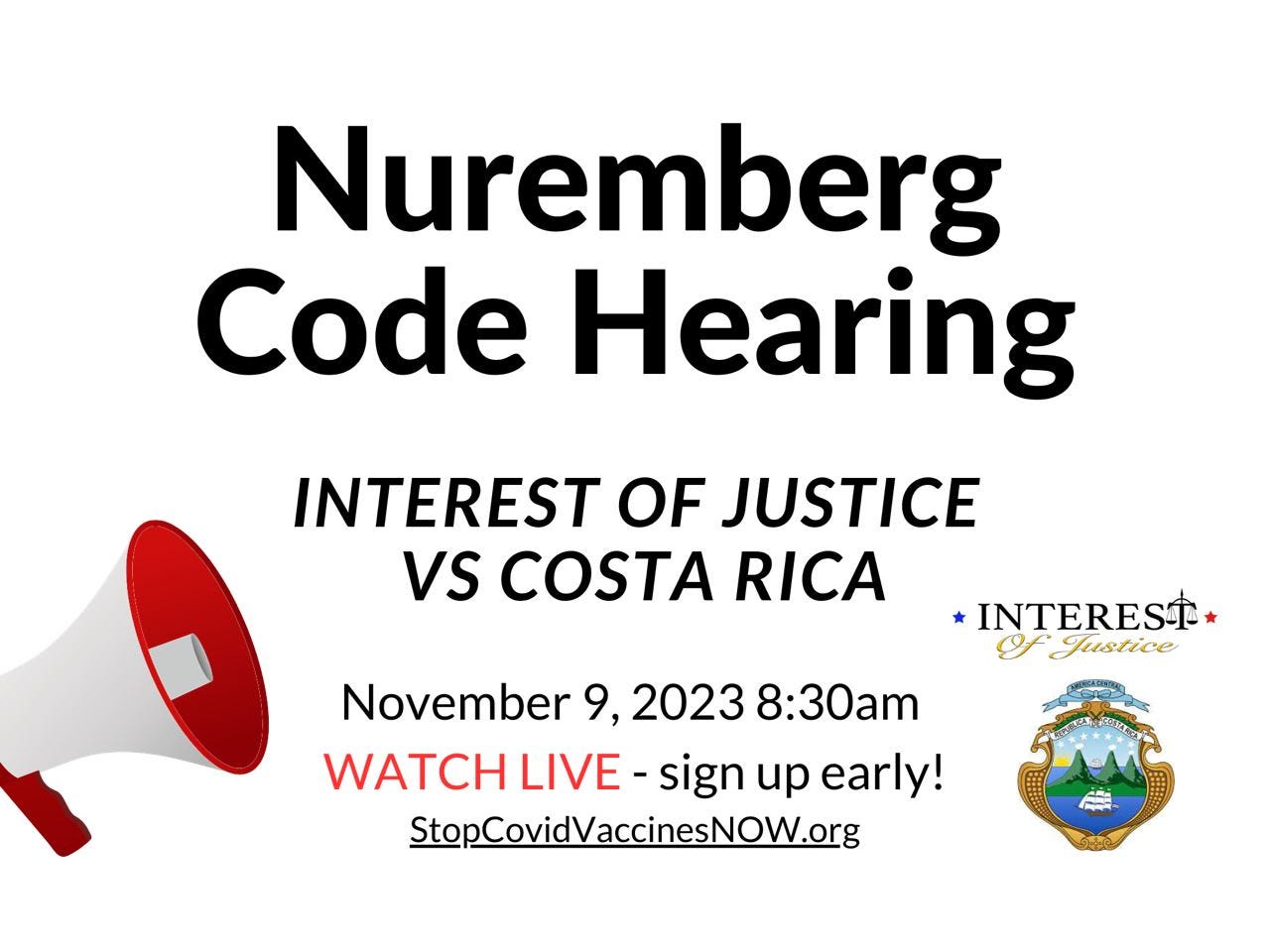Battle For Your Brain: Defending the Right to Think Freely in the Age of Neurotechnology'
OECD
This article explains the precise legal work humanity needs to do to stop Klaus Schwab and his crew from hacking into our MINDS!!! IOJ is committed to fighting the WEF’s dystopian future, in particular the ability to read our thoughts and throw dissidents (like us) into the gulag in the morning. IOJ has decided to help with promoting a new pact with governments for the implementation of an expanded set of rights that includes right to “mental privacy”. We will draft a pact and present it within a couple months.
Excerpted from the first chapter of The Battle for Your Brain: Defending the Right to Think Freely in the Age of Neurotechnology by Nita A. Farahany, published by St. Martin’s Press. Copyright 2023. All rights reserved.
The Forum Network is a space for experts and thought leaders—from around the world and all parts of society— to discuss and develop solutions now and for the future. It aims to foster the fruitful exchange of expertise and perspectives across fields, and opinions expressed do not necessarily represent the views of the OECD.
Suppose you keep a written diary and wish to share a passage from it with a friend. You hand it to them and ask them to read the highlighted passage. Your friend does so and hands it back. Now imagine instead that your friend also made a copy of your diary, which they keep in a file on their desk so they can return to it anytime they want to learn something new about you, whether you intended to share it or not.
Raw brain data captured by EEG, EMG, and other neurotechnology are similar. EEG, for example, records raw brain data—delta (slow waves), theta (medium), alpha (higher), beta (higher still), and gamma (the highest, at 30–80Hz)—as well as the electrical activity of nearby muscles, electrode motion interference, and ambient noise.
This “raw” data is then fed through software that filters out artifacts and extraneous information, analyzes the brain waves, and picks out the relevant information to return to you. If brain activity is recorded and stored, that same raw brain data can be returned to time and again and mined to learn all kinds of additional insights about you—such as whether you are at risk of stroke or Alzheimer’s or ADHD. All without your knowledge. […]
We stand at a fork in the road—where the coming dawn of neurotechnology could change our lives for the better or lead us to a more dystopian future where even our brains are hacked and tracked.
“It’s happening somewhat faster than we thought,” says Howard Chizeck, a professor of electrical engineering at the University of Washington. Chizeck expects that millions of people will soon be playing online games while wearing brain–computer interface devices. The operator of the game could play Twenty Questions, and measure the automatic brain reactions to what the gamer sees. “I could flash pictures of [gay and straight] couples and see which ones you react to. And going through a logic tree, I could extract your sexual orientation,” Chizeck says. “I could show political candidates and begin to understand your political orientation, and then sell that to pollsters.” This kind of probing could be accomplished through spyware by a malicious actor but could just as easily be built into popular games and technologies, allowing the manufacturers to surreptitiously collect even more data about us. […]
Also on the Forum Network: Put the public back in tech policy by Marietje Schaake President, Cyber Peace Institute
How can democratic governments and their citizens regain agency over decisions made about digital technologies?
On Cognitive Liberty
When Shoshana Zuboff coined the concept of surveillance capitalism, our personal data had already been widely commodified and our ability to claw it back largely gone. With neurotechnology, it’s not too late to protect against that same fate for our brains. We stand at a fork in the road—where the coming dawn of neurotechnology could change our lives for the better or lead us to a more dystopian future where even our brains are hacked and tracked. The choice is still ours to make.
How do we choose the right path?
By recognizing a new human right to cognitive liberty. […]
Sharing our neural data creates unprecedented possibilities to solve some of the most challenging health issues we face. But it also introduces unprecedented risks to our right to our own vulnerability, which is one of the many reasons we need to explicitly define the right to mental privacy. In doing so, we can specify precisely who can track our raw brain activity, when they can do so, and for what purposes.
It isn’t too late to secure individuals a right to cognitive liberty. By recognizing a new right to cognitive liberty and defining its contours, we can enjoy the benefits of neurotechnology while preserving a space for mental reprieve.
Securing mental privacy to individuals will require us to update and broaden our contemporary understanding of the bundle of rights included within cognitive liberty in international human rights law—including mental privacy, freedom of thought, and extending the collective right to self-determination to individuals. […]
Implementation will require corporations, governments, academies, and the public to join in deliberating and defining the requirements for the responsible use of neurotechnology and neural data in society.
source: https://www.oecd-forum.org/posts/the-battle-for-your-brain-by-nita-a-farahany
Find out more about The Battle for Your Brain: Defending the Right to Think Freely in the Age of Neurotechnology by Nita A. Farahany (2023, St. Martin’s Press)
And find out more about the OECD's Recommendation on Responsible Innovation in Neurotechnology and OECD work on privacy
Robinson O. Everett Professor of Law & Philosophy, Duke Law School; Author, The Battle for your Brain
Nita A. Farahany is the Robinson O. Everett Distinguished Professor of Law & Philosophy at Duke University, and Founding Director of the Duke Initiative for Science & Society. She is a frequent commentator for national media and radio and keynote speaker at events including TED, the Aspen Ideas Festival, the World Economic Forum, and judicial conferences worldwide. From 2010-2017, she served as a Commissioner on the U.S. Presidential Commission for the Study of Bioethical Issues. She is also co-editor-in-chief of the Journal of Law and the Biosciences and on the Board of Advisors for Scientific American. Farahany holds an AB (Genetics) from Dartmouth College, an ALM (Biology) from Harvard University, and a JD, MA, and Ph.D. (Philosophy) from Duke University.










Thank you for covering a difficult topic that more people need to know about. Here is some even spookier information about this. https://secularheretic.substack.com/p/neuro-strike-the-invisible-assault
Neurotechnology is a invasion of privacy and meant to control us.
This can be proven in a court of law and be deemed harmful our survival. Limitations of science need to be established and defined as protection to exist.